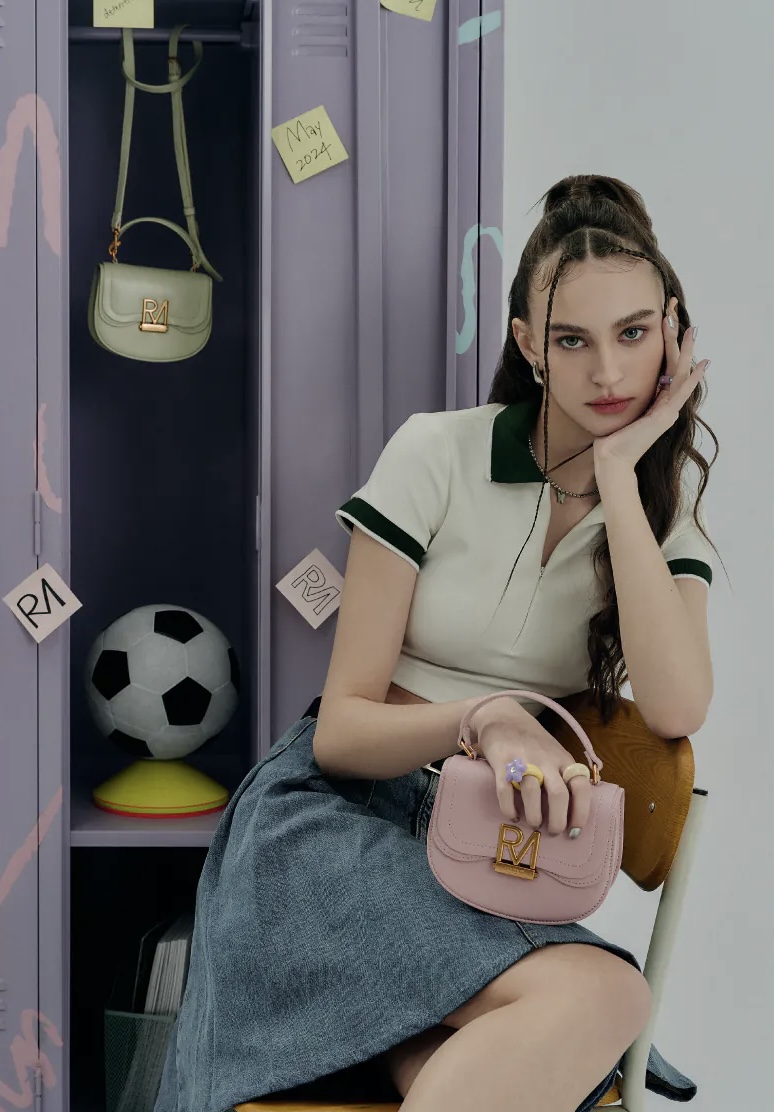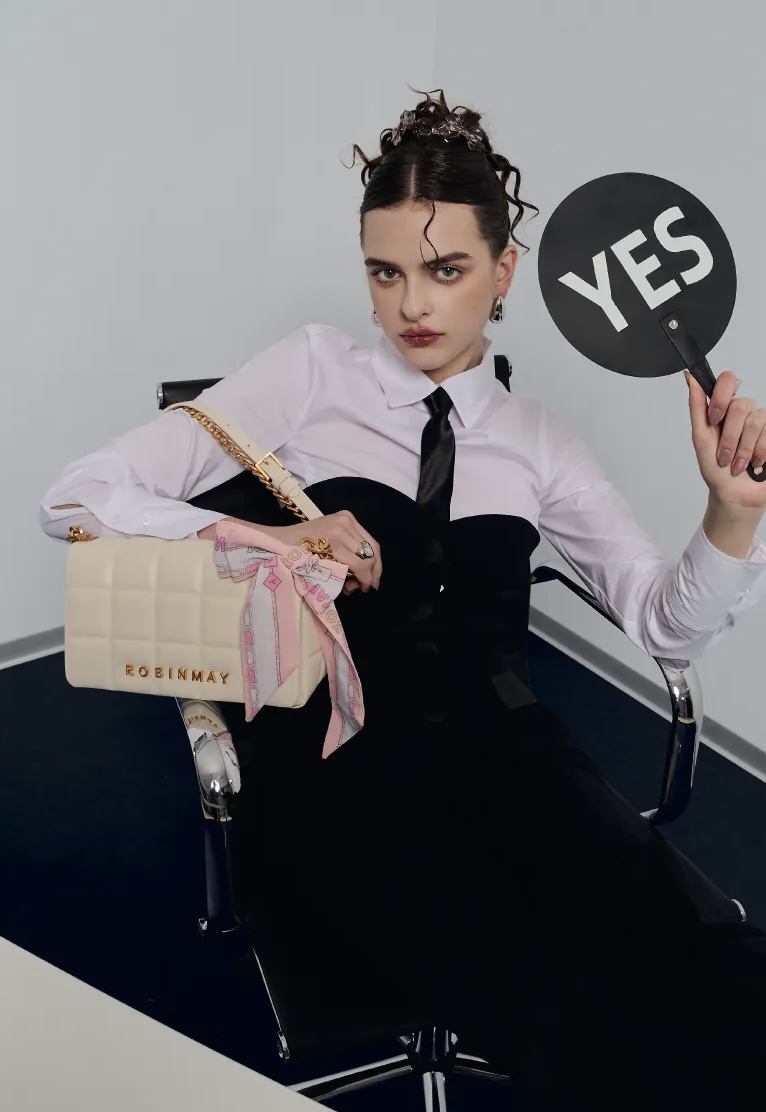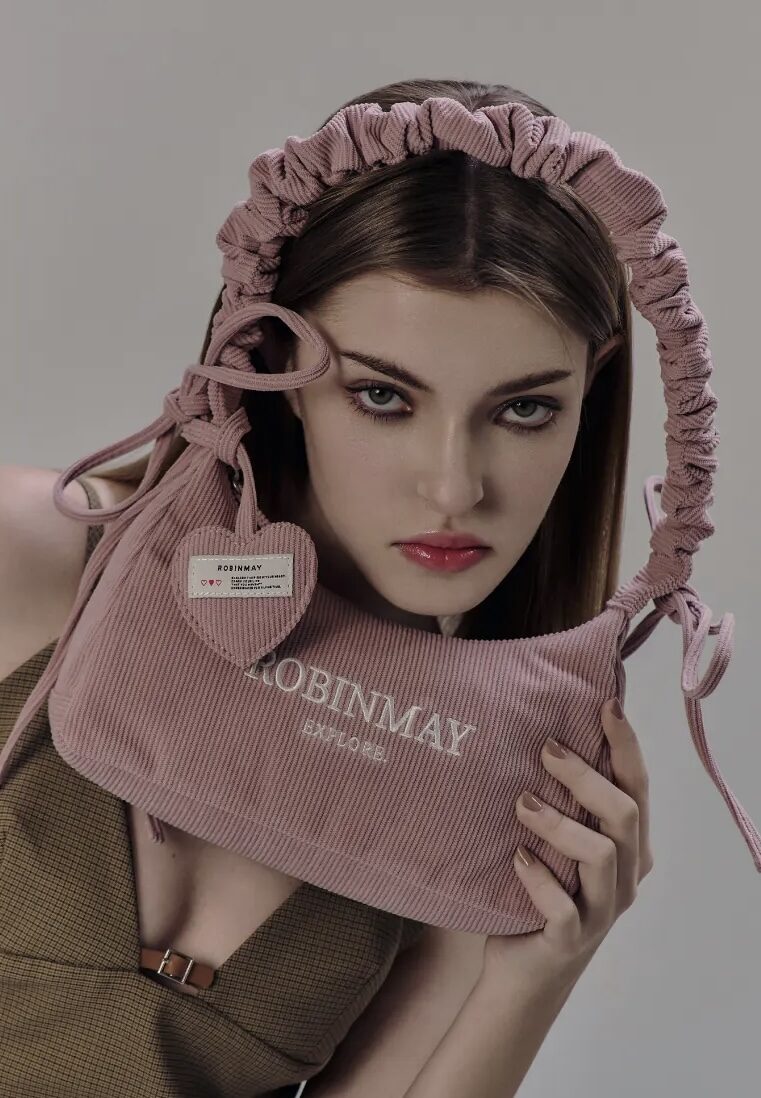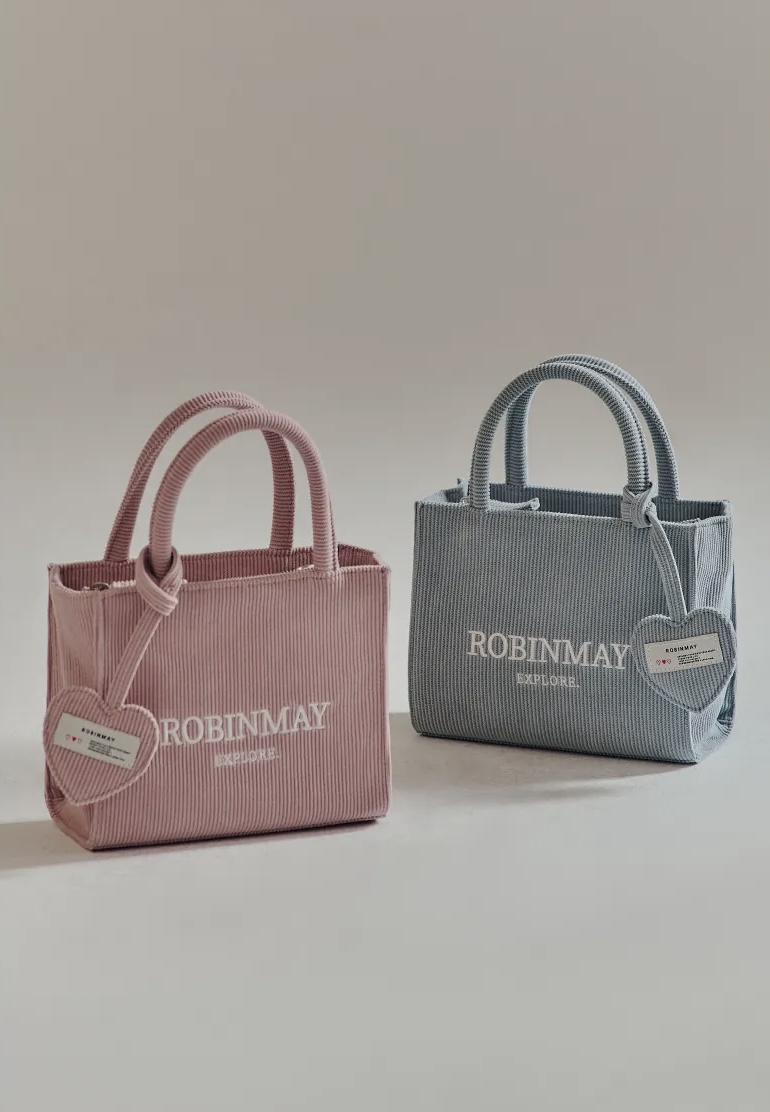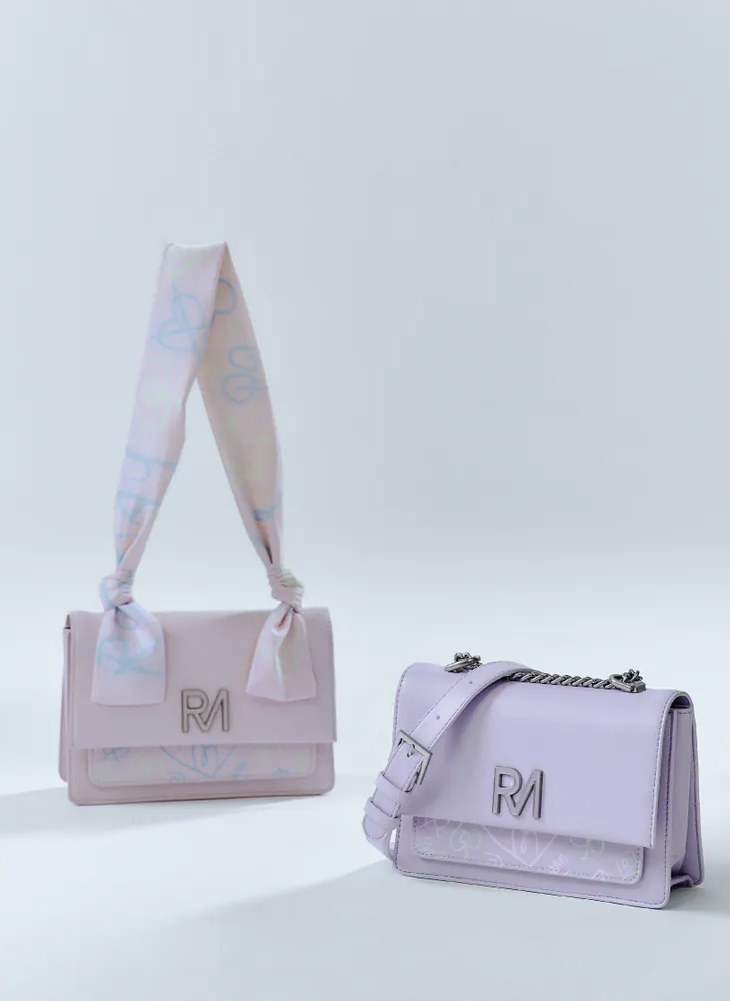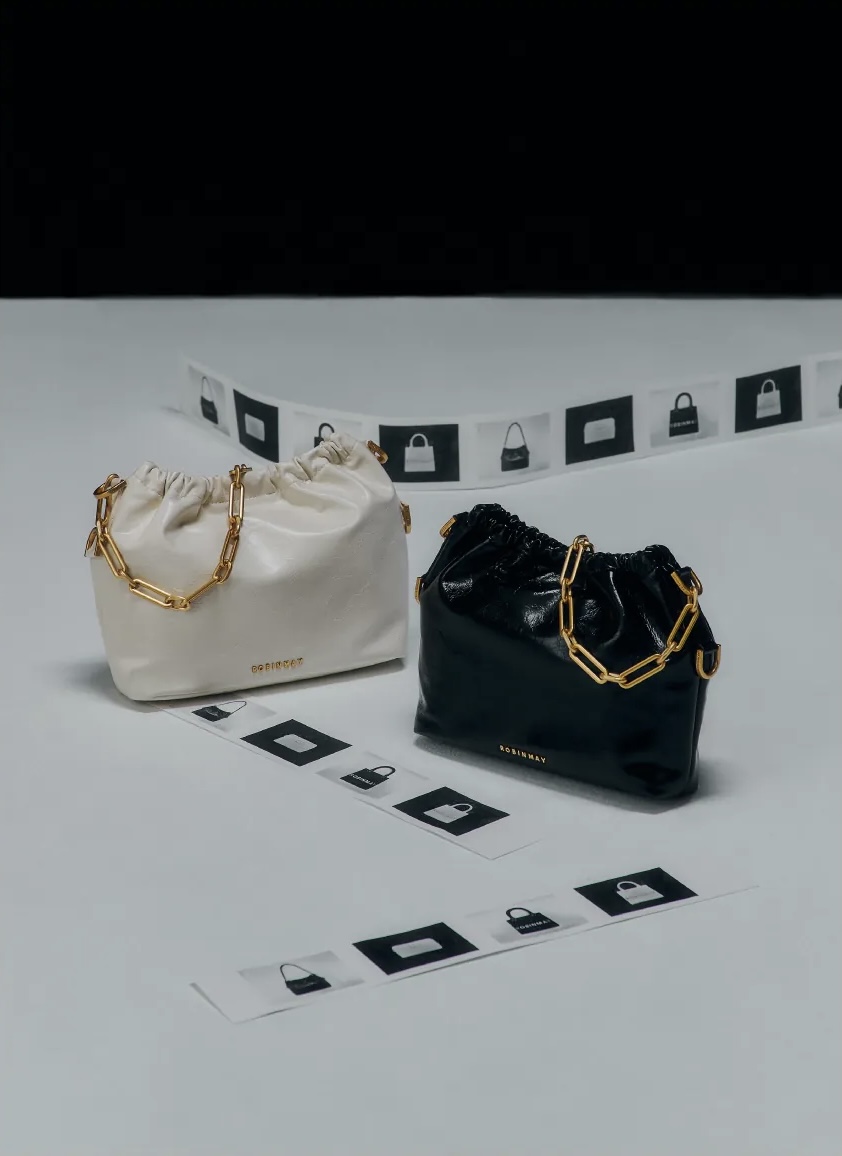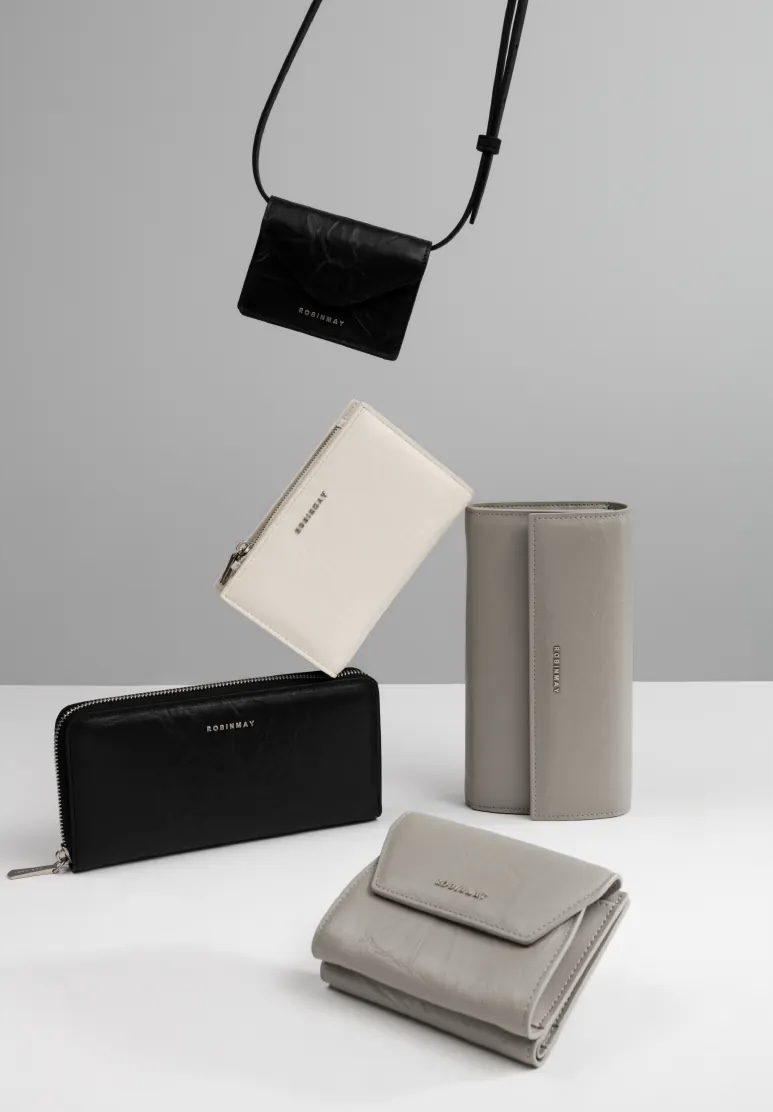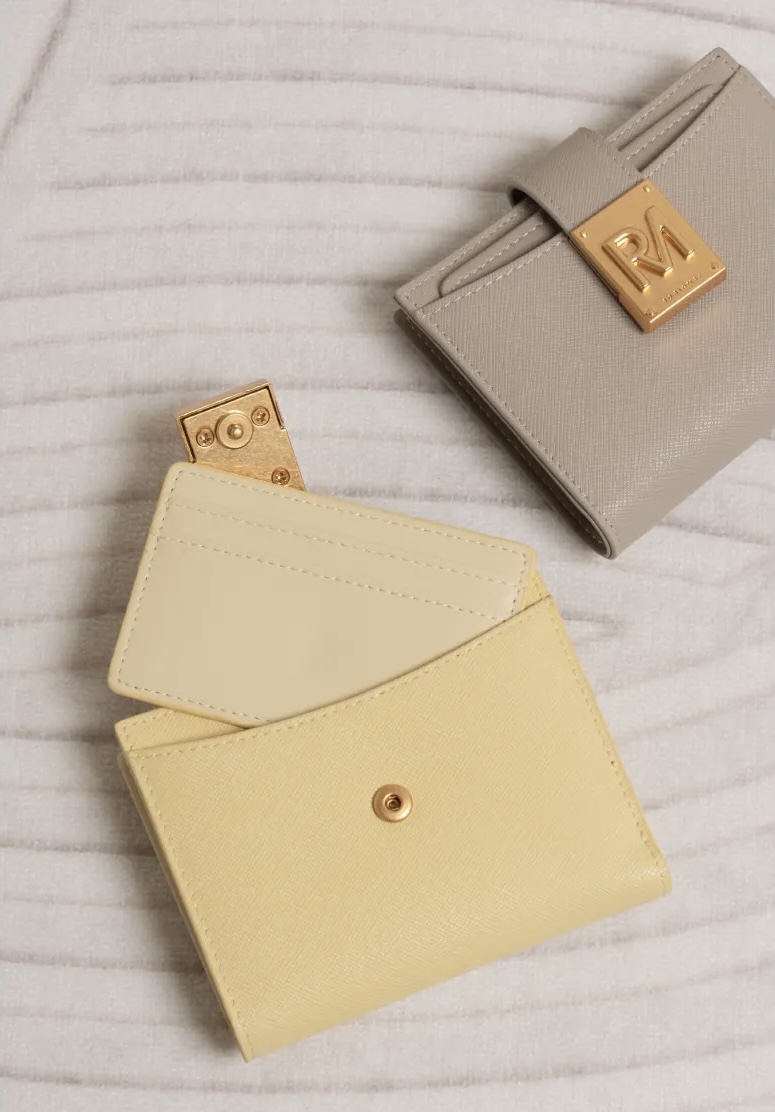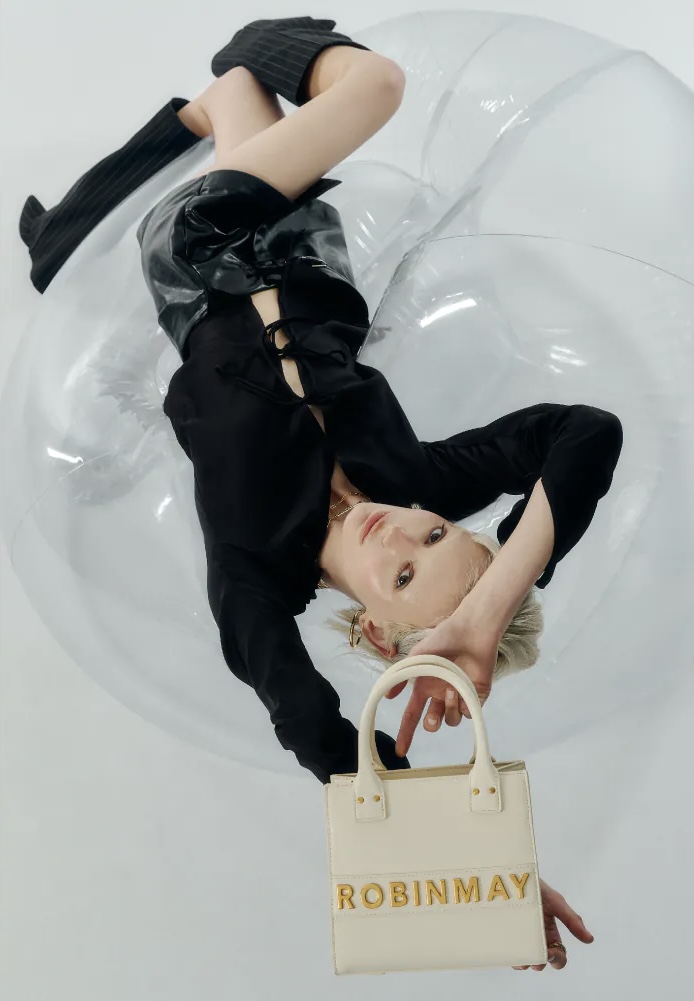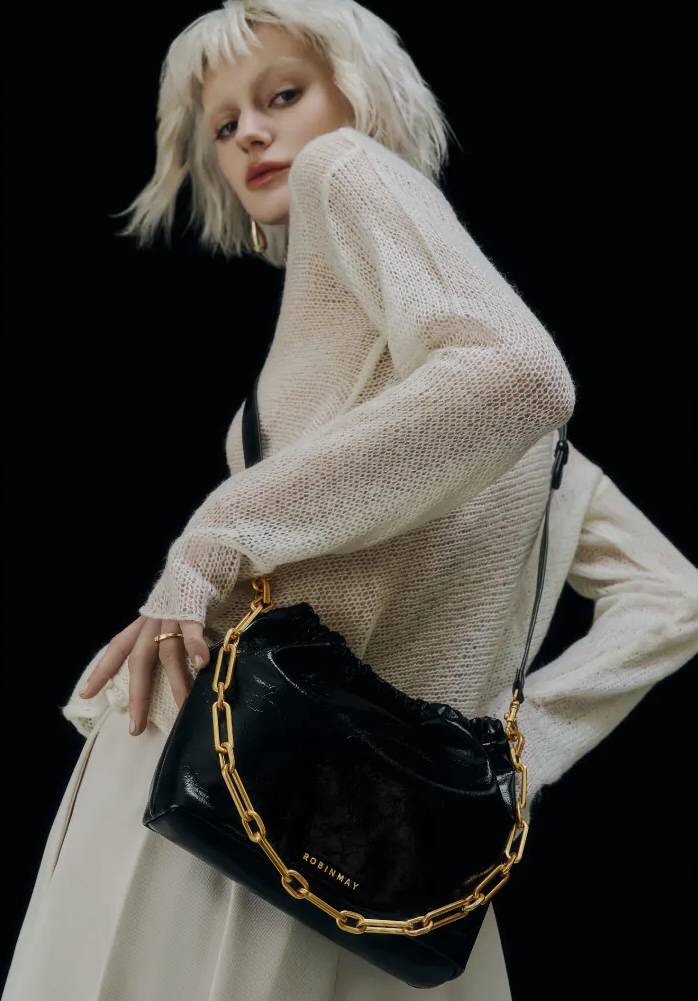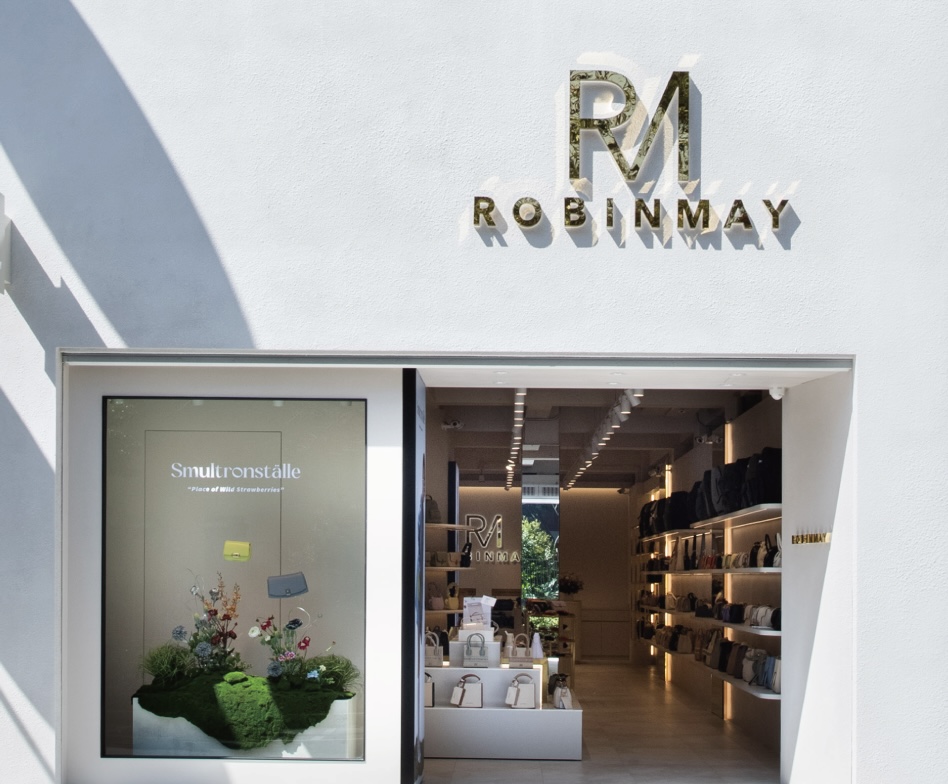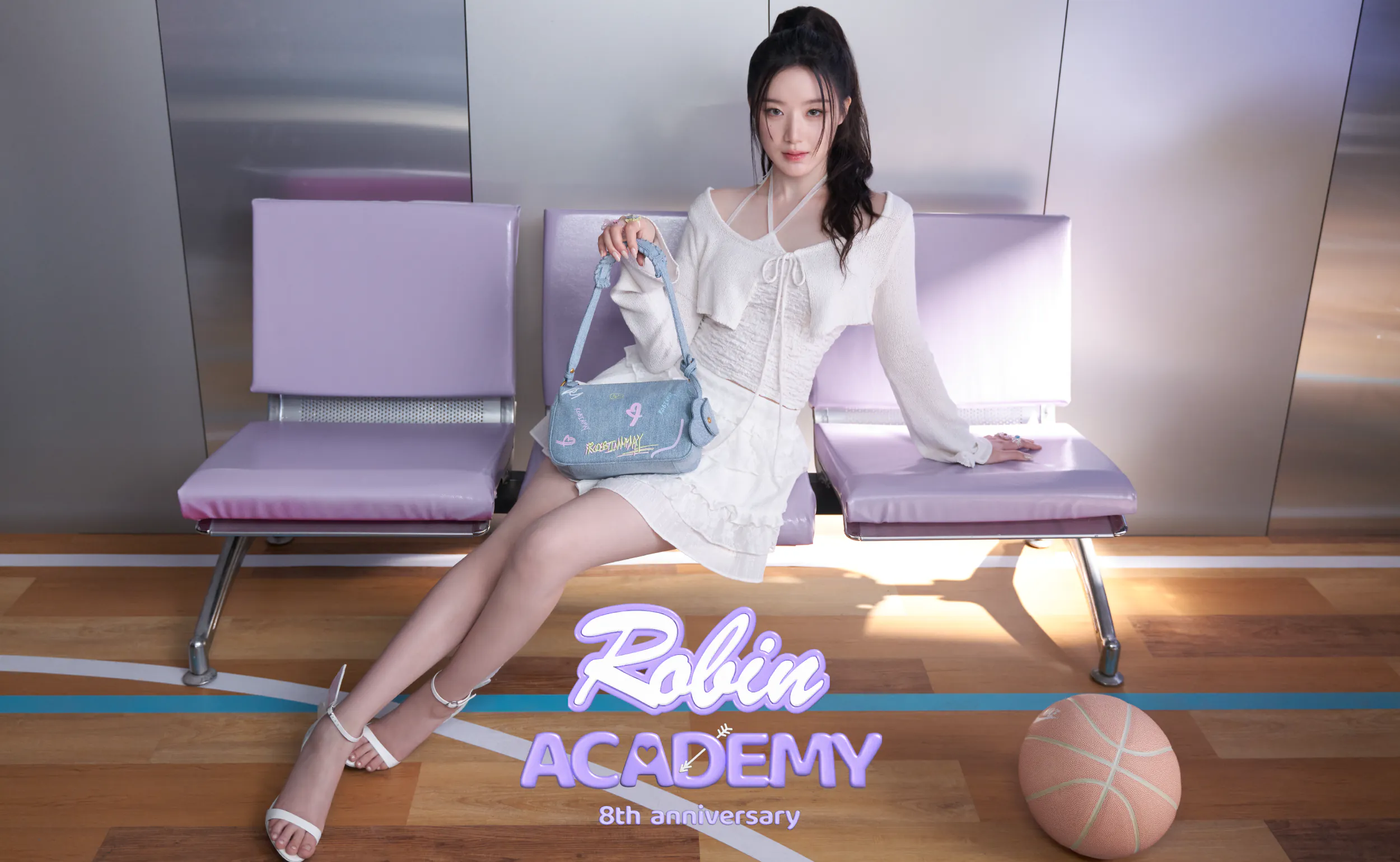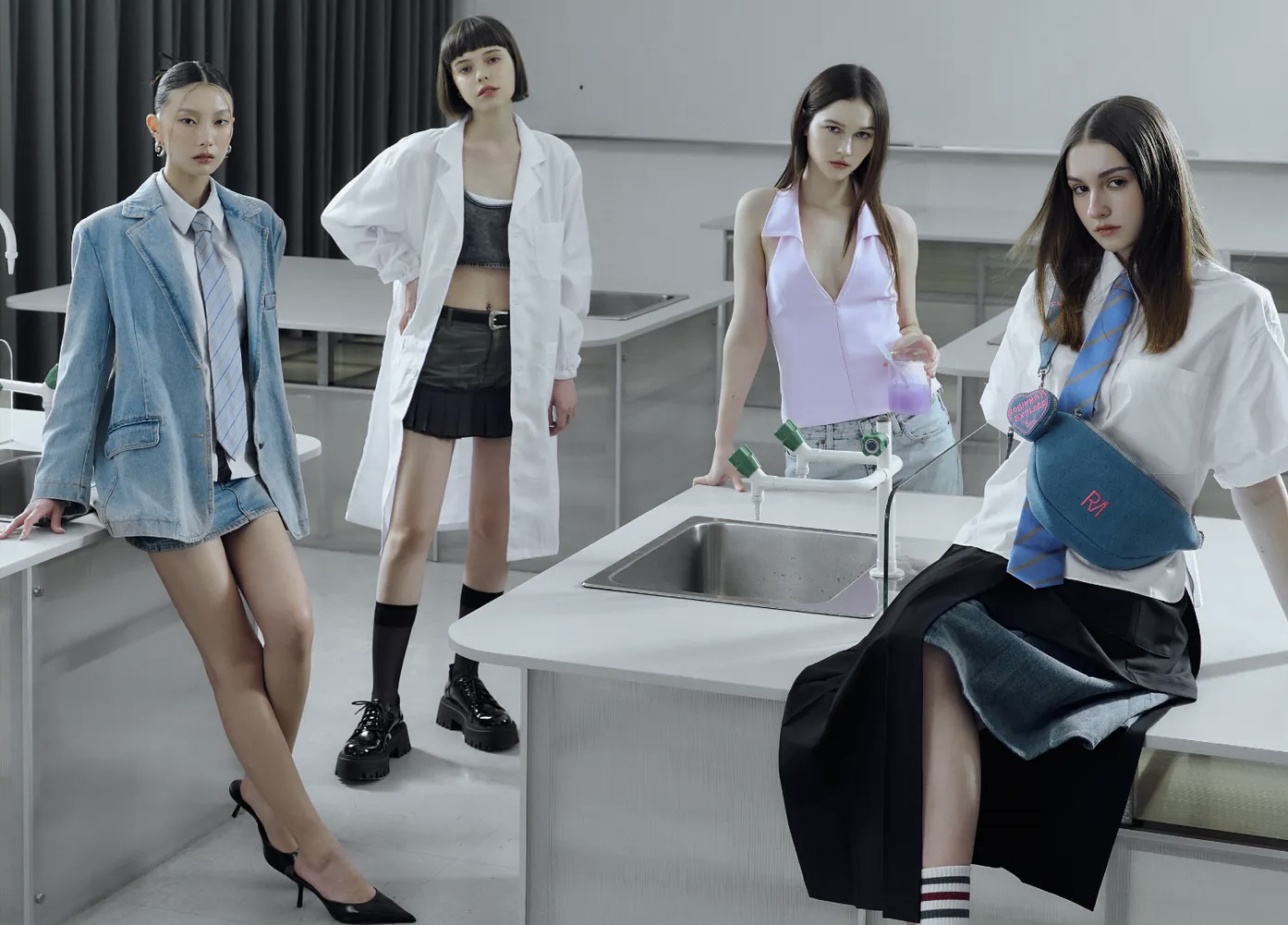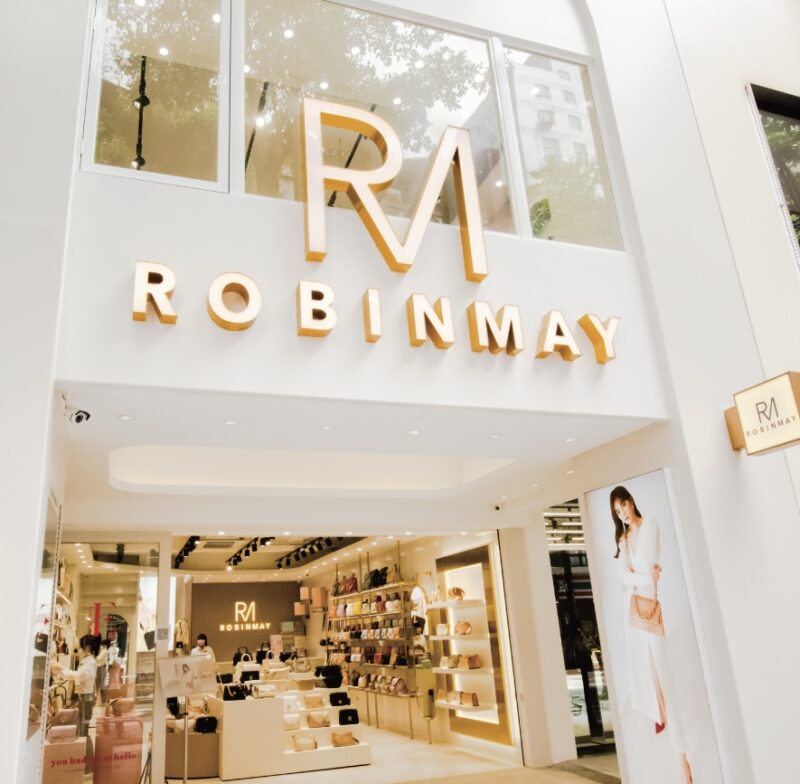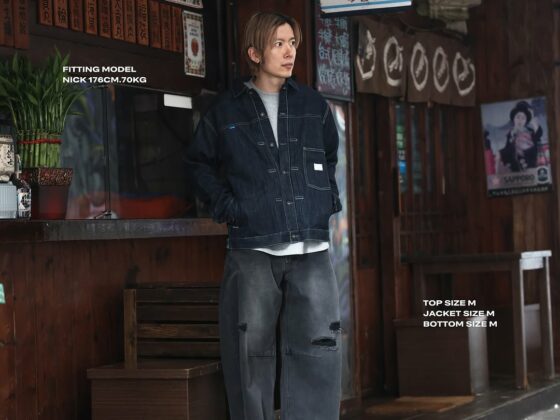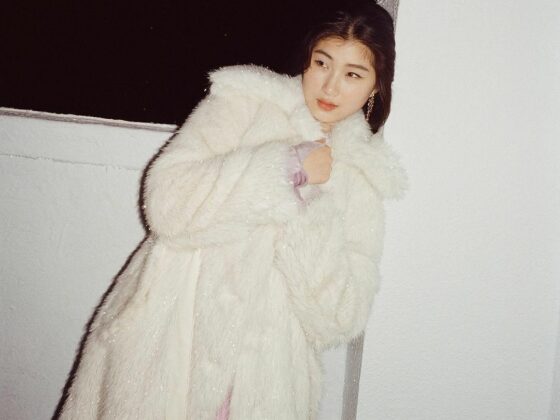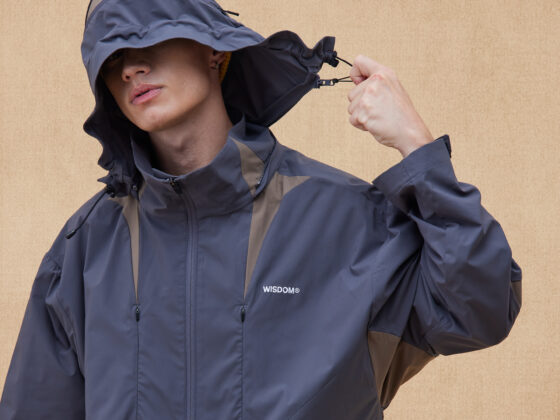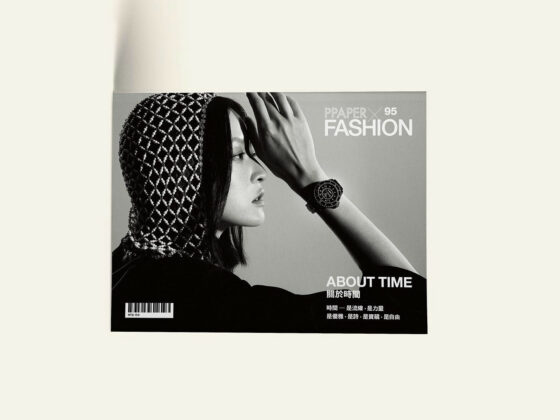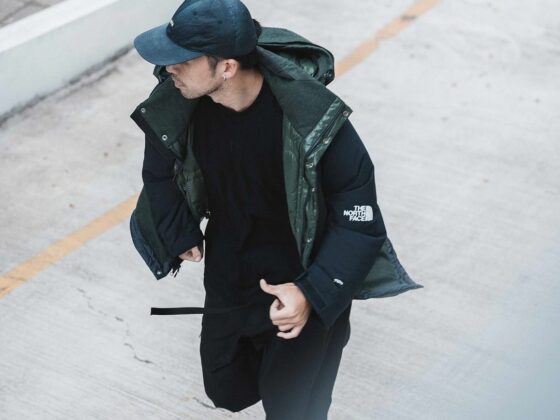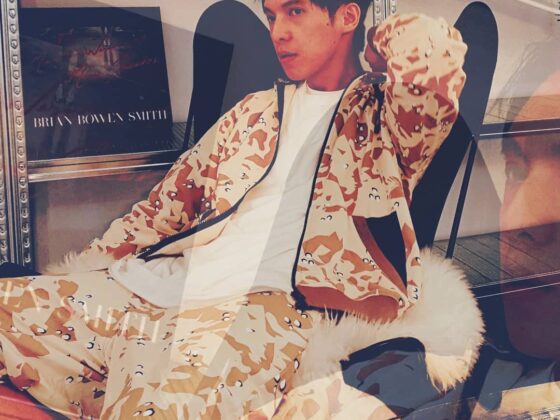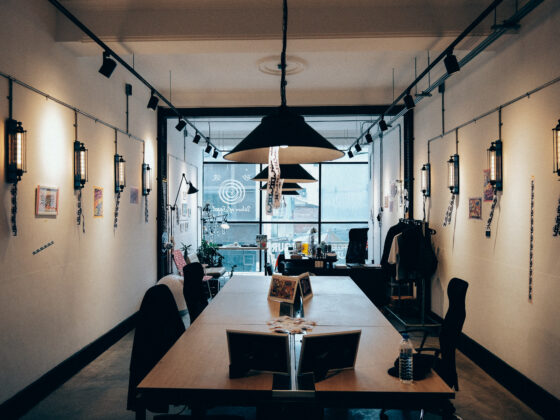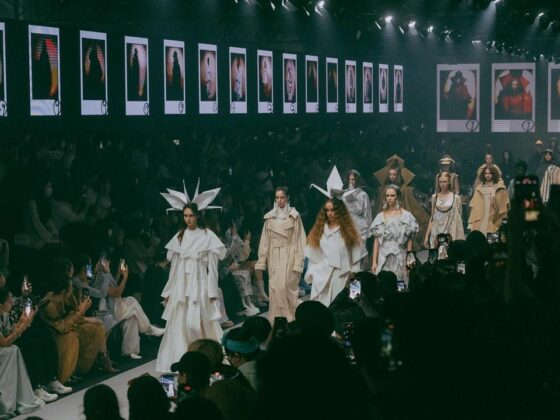Bags are an indispensable accessory in the fashion industry, serving both functional and aesthetic purposes. They are more than just items for carrying essentials; they are statements of personal style and identity. From the practical everyday tote to the luxurious designer clutch, bags have become symbols of status, craftsmanship, and innovation. People of all ages and genders hope to find a bag style that suits them. A thoughtful design not only meets aesthetic needs but also provides convenience in use.
When it comes to Taiwanese bag brands, ROBINMAY is likely the first to come to mind. Starting as a physical store, it has now expanded to over 15 locations across Taiwan and boasts a thriving online presence. With a comprehensive range of designs, creatively decorated stores, and engaging media promotions, the brand aims to make a lasting impression on consumers. ROBINMAY emphasizes staying close to market demands and quickly adapting to customer preferences, offering a diverse selection and enjoyable experience for customers.
ROBINMAY not only strives for innovation but also places great importance on meticulous attention to detail, ensuring product quality and affordability. The founders and their team have put tremendous effort into building the brand. Through this interview, we hope to share ROBINMAY’s story, philosophy, and aspirations with our readers.
Can you please tell us about what motivated you to create the brand initially and named it as
ROBINMAY?
TSENG: Our primary motivation for founding ROBINMAY was to adapt to the changing times. Nowadays, the market is pursuing spiritual packaging, and customers are increasingly emphasizing “brand spirit.” Initially, we started by selling goods in a manner similar to bulk buying. However, as the market became more transparent, customers easily received information directly from various marketplaces. Therefore, we wanted to create our own brand, designing and packaging ourselves. If we could have our own platform for creative design, production management, and promotion, it would be easier to control all the details, improve our products and services, and adapt to market demands.
The name ROBINMAY is derived from the birth month of my wife and me, which is May. “Robin” represents the robin bird, small in size but rich in color, symbolizing ROBINMAY’s handbags that embody quality and diverse designs.
The brand spirit of ROBINMAY is “All For Explore”. Can you tell us more details about the brand
philosophy and the story behind it?
TSENG: Our brand continuously evolves and innovates, never limiting itself to one thing or a few things. We strive to create different types of bags, whether for men or women. We don’t target a specific market or design products for a particular customer group with the philosophy which is focusing on two main aspects: fashion and functionality. Furthermore, each bag has its own unique details.
My wife and I founded the brand, and it started with a brick and mortar store, which allows us to stay close to the market and clearly understand its needs. We create what the market needs, adding unique elements to provide the most suitable products for our customers. We don’t force ourselves to make certain products; instead, we first understand what the market needs and then create.
Because we value innovation and don’t set boundaries for ourselves, we must continuously explore and seek all possibilities, which is why we have the slogan “All for Explore.” We know that the brand needs to keep exploring to stay fresh. The key points are speed and constant adaptation. We respond to the market quickly and keep up with fashion trends at the fastest pace. Perhaps it is our innovation, speed, and adaptability that constitute our greatest value.
8 years have passed since the establishment of the brand in 2016. The brand has grown from its first flagship store to currently having over 15 stores across Taiwan and well-developed online store. Can you share any challenge encountered in these years?
TSENG: Yes, there have indeed been many challenges over the years. The biggest challenge has been maintaining innovation, along with some planning reforms and changes. This includes how to design various styles to make them more acceptable to the market. The brand is constantly evolving and growing, and considering the development of overseas markets presents a very different challenge. Every country has a different culture, so we must conduct extensive research to understand local cultures and market demands before expanding overseas. We need to adapt to the preferences and needs of each place in order to successfully promote the brand in new locations.
What is the brand positioning and core value of ROBINMAY? Is it possible to let us know what are the keys to making your brand standing out from other brands in the market?
TSENG: The core values of ROBINMAY are “Focus and Speed.” We respond to demand very quickly, almost “immediately.” We don’t take long to produce the desired bag styles. Additionally, our products are very diverse, offering a wide range of choices. We don’t limit ourselves to a single collection or bag style, giving customers a variety of options in terms of appearance, function and color.
Our bags can be broadly categorized into two parts: one is fashion-oriented, and the other is functionality-focused. These two aspects attract different consumers, making ROBINMAY appear diverse to the public. Whether you are looking for fashionable styles or functional bags with many compartments, you can find your desired style within our brand.
What do you imagine people carrying ROBINMAY to be like in your mind?
TSENG: To be honest, It is hard to imagine, because we don’t limit who can use which style. Our designs are very versatile and can be paired with any outfit, offering great convenience. The bags have ample capacity, accommodating all sorts of items. Of course, when we come up with a design, we do think about what occasions it might be suitable for. But from ROBINMAY’s perspective, we hope our bags can be used at any time, not just for specific occasions or places. This is where we differ from other brands. Each bag has a unique structure inside, tailored to the needs of the customer, so one design might be more suitable for them.
We generally don’t think about which design fits which occasion or style. The same bag can be styled differently by each customer, and how they carry it varies as well. To make our bags more versatile, we offer different strap designs, allowing customers to choose for themselves. So, I don’t imagine what image people will have when using our designs. Instead, we focus on creating what will best meet our customers’ needs. Because we are adaptable, even changing a small detail can result in a different design, but this is something the customers can freely pair. The decision lies with the customers, not us. We just provide them with an environment where they can decide on both fashion and functionality. The brand aims to meet customer needs through diverse options.
The brand is aiming at satisfying user’s demand with delicate craftsmanship, finest details and trendy design. How do the brand consider the design of the product in order to fulfil different desires from the customers in terms of product’s function, practicality, aesthetic etc.?
TSENG: We have put a lot of thought into functionality. For example, each of our bags comes with a mirror. Women generally pay attention to their appearance, and having a mirror in their bag allows them to check their appearance anytime, anywhere. Additionally, in Taiwan, cards such as transportation cards are frequently used. So, we designed a space specifically for placing cards. Commuting is common in Taiwan, and people need to take public transportation every day. Therefore, we have made some changes in this aspect, such as using accessories to protect the mirror, making it both beautiful and practical.
The appearance is quite subjective, but our design team always considers what styles and looks will be acceptable to customers. For instance, detailed interior design with many compartments allows customers to organise their belongings more efficiently. It’s like buying a house — not just an empty space, but with well-designed areas within it, providing convenience and a different experience for the user. It is all about usability.
The brand is having various collections with its own unique design at the same time. How does the brand distinguish between different styles and designs?
TSENG: We do not limit ourselves in terms of bag design; we offer every type of bag and functionality. Young people aged 18-20 prefer simpler designs without logos. However, customers aged 24-30 are different. They are generally more confident, mature, and economically independent, and they like to showcase themselves. Therefore, designs with logos are more popular among this age group. Yet, customers of the same age group do not necessarily buy the same style of bags. We mainly distinguish our products based on style and design elements to cater to different customer groups.
ROBINMAY is very popular in Taiwan and even expanding its reputation in other countries now. What is your opinion on the importance of having both online and offline store? To what extent do you think social media and crossover influencing the growth of the brand?
TSENG: ROBINMAY started with physical stores, so we have more experience operating them compared to online marketing. However, consumer behavior in Taiwan is gradually shifting from online to offline shopping. Especially after the pandemic, sales in physical stores have surpassed those of online stores.
For us, online stores are mainly for promotion, not necessarily to increase sales. Given modern lifestyles, people are always on their phones, so increasing exposure on social media helps customers remember the ROBINMAY brand and leaves an impression. After all, bags are items that often need to be seen and felt in person. Clothes can be decided upon by just looking at outfits and photos, but with bags, you cannot tell how they truly feel on you just from pictures. Therefore, our customers often visit physical stores. They might have an idea of a bag they like from online browsing, but seeing other options in person can change their decision. Which means, online and offline stores complement each other.
On social platforms like Facebook and Instagram, our goal is to expose customers to our brand while they use these media, ensuring they know about ROBINMAY and remember us. Collaborating with celebrities serves the same purpose—creating memorable impressions for customers. Every celebrity has their own fanbase. For example, we have continuously collaborated with Ella from the popular and approachable Taiwanese group S.H.E. This year, Shuhua, a member from famous korean idol group (G)I-DLE became our brand ambassador. Our collaboration with Shuhua aims to bring out a sense of innovation. Using celebrities to attract customers, we take the first step of introducing them to the brand. They then learn more about our product designs and comfort, discovering how useful ROBINMAY bags are. No matter the time or activity, our designs can always be used.
Could you share to us that what is the future plan of the brand? And, what do you think about expanding the business among all Asian countries?
TSENG: Our primary goal is the Asia-Pacific market, starting with Japan as our first point of expansion. Japan is the most important place in the Asia-Pacific region, holding the highest status and the largest market in the fashion industry. Therefore, Japan is crucial for our business expansion. Additionally, Japan is well-loved by the public, and the relationship between Taiwan and Japan is very friendly. Thus, our first thought was to expand into Japan, planning to establish stores there as a foothold and the first step in our Asia-Pacific expansion.
In Taiwan, we will continue to increase the number of stores, setting up in potential growth areas, so more consumers can directly experience ROBINMAY.
What advice would you give to our readers who are interested in starting their career or having their own business in fashion industry?
TSENG: Starting a brand is very challenging. Take my team as an example; we paid a lot of effort, not only considering the appearance of the bags but also their usability and customer experience. The most crucial issue is quality. We let customers know that RM achieves such high quality, yet our products remain within an acceptable price range, which is something we have consistently worked on.
From the brand’s inception until now, we have hardly had a proper rest. The market changes daily, and to keep up with its pace, we cannot stop. It is impossible to relax and be an easygoing boss after starting a business; it requires full dedication 24/7 without any slack. If you’re not mentally prepared, starting a brand is not advisable. Therefore, before creating a brand, one must think carefully and be ready for continuous challenges and difficulties. Moreover, you absolutely cannot give up or retreat after encountering failure; you must always aim for success without any thoughts of retreat. Strong willpower is essential.
Absolutely cannot give up or retreat after encountering failure; you must always aim for success without any thoughts of retreat. Strong willpower is essential.




